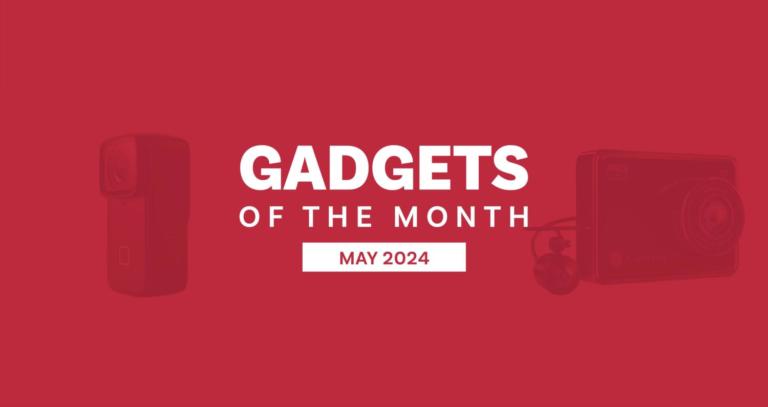We’re extremely excited to see the return of Paul Merton’s Impro Chums – a team of exceptional performers that take comedy to a whole new level through the art of improvisation. In fact, we’re so excited that we heard from the long-standing line up of Paul; Mike McShane; Suki Webster; Richard Vranch; Lee Simpson; and keyboard player Kirsty Newton.
So – tell us what the main differences are between putting together a written show and performing something that’s completely improvised?
Paul: The difference between this and a written show is that the latter takes a lot of pre-thought and hard work, and if you’ve got a bit that doesn’t work, you think “how am I going to fix that?” With impro, there are no bits to worry about because they don’t exist yet.
Suki: There’s a joy in both, but this is like being on tour with your best friends and playing like six-year-olds, and it’s fabulously good fun. The joy of a script is that [when] you’re acting you get to hone and perfect a performance and with writing it’s the same thing; in impro there are always going to be little mistakes, that’s part of it.
Paul: In written pieces, if there’s a very funny line that always gets a big laugh you’ve got to try and get that same laugh every night while making it sound like you’ve never said it before, so there are different sets of challenges.
Mike: When you get an established script, you work on it to make it seem like there’s a real human exchange in real time, whereas impro is a real human exchange in real time. Once you’ve established the characters, the content is developing as you go.
Do you watch other impro groups that have popped up in recent times?
Suki: I don’t watch masses but I do guest with lots: I love being invited to guest with all sorts of groups, it’s great fun. It’s good to work with other people and get new ideas. I think there was an increase initially because of the success of Whose Line…? and now with the success of Showstoppers and Austentatious, so other people think that this might be a path in.
Richard: Also it’s not just performers who do it. People who have day jobs and business people do it as a hobby or as therapy, or perhaps for team building, so it’s spread outside the community of people who do this for a living.
Mike: Those sophisticated examples such as Showstoppers and Austentatious found success in the form of narrative improv instead of game improv like Whose Line…? and us, and that brings a more sophisticated audience and demands to keep it interesting. It keeps growing and getting better and having more history behind it, which can only keep inspiring people.
Is there any kind of preparation you can do before you go on stage?
Paul: For me, the preparation is having done it for 30 years.
Suki: We will do a one minute warm-up of Whoops, the first game of every Chums show, where somebody is pointed at and has to pick up the sentence.
Paul: That loosens you a bit and it reminds us when we’re playing a larger venue to not talk so quickly at first. Don’t be slow but be clear. Be pacy but not too quick.
Richard: Having done it so many times before with the same team, that trust in each other is solid and unshakeable and we’re confident in each other. People say that working together as a team makes it easier because you know what the other one is going to say. But in fact it’s the opposite: it makes it easier because we trust not to have to know what the other one is going to say. It’s not that we’ve got a code, it’s that we can wing it because of experience and trust.
Do you ever analyse what’s happened during an Impro Chums show or is it a case of once it’s done, you just forget about it?
Mike: We have a little post-mortem to talk about how something might have been more effective, but that’s about it.
Paul: The danger with doing the same games every time is that you can fall into a pattern about how you play them and you want to avoid that as much as possible. On tour, we mix up which games we do and who’s doing which games.
Richard: People come up to you afterwards and say “oh, we loved the bit with the so-and-so” and I have no idea what they mean.
Paul: Because it’s not something you have to remember, then you just don’t. You don’t even send a conscious command of “brain-wipe-delete”. It all just goes.
What are the pros and cons of touring?
Lee: I live outside London so I often travel separately, but Paul treats us to a big old rock and roll tour bus with beds, TV, a kitchen, on-board loo. It’s an indulgence but it’s absolutely wonderful; there’s a real camaraderie and fun to be had. We all do different things. Some go to the back of the bus and watch DVDs.
Paul: Having a bus means that we can get back to London and go to sleep in your own bed, so that saves on hotel bills. When you’re doing all these dates, you want to cut down on stress as much as possible, such as constantly waking up in hotel rooms and wondering what city you’re in and missing home. So if you can get home, even if it’s 2 or 3 in the morning, it’s still more preferable to hotel rooms.
Richard: And comfortable transport means we arrive at the gig in very good condition, and that makes a huge difference. Panicking because a train has been cancelled and worrying whether we can get to the gig in time is not a good way to prepare yourself for a show where you’ve got to be creative.
What are the particular musical challenges to the show?
Kirsty: The main challenge is when I have to make something up from nothing and I think “what I’ll do now is this, and that might be funny.” And other times, it’ll be more like “let’s find out what’s going to happen.”
Richard: In a verbal scene, someone says something and another person has to come back with something else and the exact same exchange is happening between music and singing. The co-operation is more evident because they’re in the same rhythm and pitch but it’s the same thing.
Kirsty: It’s really important that you’ve been listening. Sometimes I’ve been enjoying a scene so much, and I have to remember that I’m not just here to watch.
Paul: The audience love the musical bits and when Mike and Suki are singing in film and theatre styles and there’s a musical number or Gilbert & Sullivan, the audience love it. It’s a real crowd-pleasing element.
Kirsty: It’s still a magical thing for an audience to come and see something being created right in front of them. I’ve heard a lot of audience members say “surely they had worked something out beforehand?”
Paul: To be able to play music is an ability and a gift that a lot of people don’t have and they admire it even more than just the verbal stuff: the lyrics and the tune just happen and it sounds like the showstopper of the year!
Suki: It’s sorcery!
Paul Merton’s Impro Chums is on at the Grand Opera House York for one night only: 1st June at 8pm. Click here to book – don’t miss out!










Add a comment